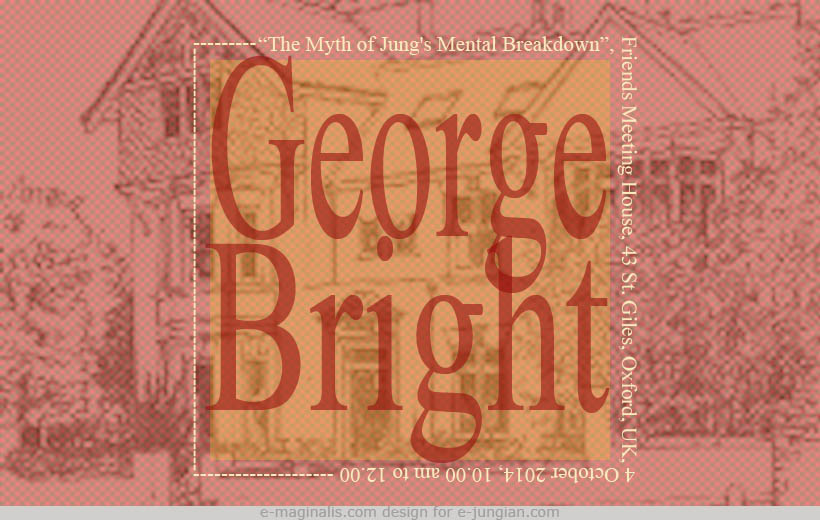
By The Society of Analytical Psychology
A note from the contributor:
„In this talk I shall present a brief account of the genesis and elaboration of the still-repeated but ahistorical assertion that Jung suffered some kind of psychotic breakdown or 'creative illness’ in 1913. Jung’s Red Book, Liber Novus, has now been available for study for four years, and I shall draw on it as the primary evidence for a very different account of Jung’s life and work during the period of its genesis, 1913 – 1917. Besides correcting the historical record, my aim is to show how an appreciation of The Red Book can enhance understanding of Jung’s subsequent writings. The persistence of the myth of Jung’s 'breakdown’ suggests that, besides its use in this case for political positioning, the apparently paradoxical concept of a creative illness may hold some meaning worth exploring, and I shall use the notion of an 'illness narrative’developed in the discipline of medical anthropology as a way into a discussion of the ways we conceive of illness in relation to the psychotherapeutic task.”
George Bright is a Training Analyst of the Society of Analytical Psychology. His most recent publication is a chapter on the clinical understanding of Jung’s concept of psychoid unconsciousness in Cavalli, Hawkins and Stevns (ed) Transformation: Jung’s Legacy and Clinical Work Today. He works in private practice in West London.
Tea and Coffee will be served
































[…] "In this talk I shall present a brief account of the genesis and elaboration of the still-repeated but ahistorical assertion that Jung suffered some kind of psychotic breakdown or 'creative illness' in 1913. Jung's Red Book, Liber Novus, has now been available for study for four years, and I shall draw on it as the primary evidence for a very different account of Jung's life and work during the period of its genesis, 1913 – 1917. Besides correcting the historical record, my aim is to show how an appreciation of The Red Book can enhance understanding of Jung's subsequent writings. The persistence of the myth of Jung's 'breakdown' suggests that, besides its use in this case for political positioning, the apparently paradoxical concept of a creative illness may hold some meaning worth exploring, and I shall use the notion of an 'illness narrative'developed in the discipline of medical anthropology as a way into a discussion of the ways we conceive of illness in relation to the psychotherapeutic task." […]